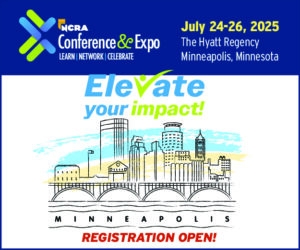In honor of National Proofreading Day on March 8, the JCR Weekly team reached out to members of NCRA’s Proofreading Advisory Council to share their most interesting proofreading conundrums and their best proofreading tips.
What is the most interesting proofreading conundrum you’ve had?
We often have witnesses who relate conversations as if they are quoting people and then not quoting. I spend too much time pondering whether to use quotation marks.
Karen Teig, RPR, CRR, CMRS
Cedar Rapids, Iowa
The appropriate use of [sic], especially: A) when they are reading from a document and misspeak; and B) with witnesses who use poor grammar.
Janine Ferren, RPR, CRR
Fishers, Ind.
Since in everyday conversation I don’t like using the word like as in “I was like yeah” or go as in “He said, ‘Yeah,’ and then I go okay,” I decided I would never use quote marks in a transcript after a witness said go or like since they did not say the word said or replied or whatever. I have always felt I was being very daring since perhaps that was not correct since young people today use those words in place of said.
Aimee Suhie, RPR
New Fairfield, Conn.
How to impart the flavor and tenor of the words through punctuation. If words can convey the spirit of the delivery, and to do so most accurately requires relaxing strict grammatical punctuation, is there a gray area to accomplish this without temerity?
Maellen Pittman, RDR, CRI, CLVS
Baltimore, Md.
I miss the forest for the trees. I get so focused on one question or answer, I miss the big picture. Proofreading is not just about correct punctuation and spelling, it’s about continuity.
Tara Hudson, RPR, CRR
Indianapolis, Ind.
What is your best proofreading tip?
If you’re stumped or have hit a roadblock, reach out to other reporters via social media. There are some great resources out there!
Karen Teig, RPR, CRR, CMRS
Cedar Rapids, Iowa
If I come to a section that doesn’t seem to flow properly, I look away from the page for a minute, then come back and read the entire Q or A, not just the few words in the section, to see how it flows.
Janine Ferren, RPR, CRR
Fishers, Ind.
Leave the transcript if you’re concerned about punctuation in a passage, and come back fresh and see how it flows. To me it is more important that the attorney reading it be able to understand the answer rather than have it be grammatically perfect. Obviously I tried to do both, but clarity is key.
Aimee Suhie, RPR
New Fairfield, Conn.
Number one, a second set of eyes. Failing that, reading backwards or out loud.
Maellen Pittman, RDR, CRI, CLVS
Baltimore, Md.
Always proofread in a different font than I see when I’m doing realtime or scoping.
I agree with others regarding punctuating the spoken word. Clarity is key. If a question or answer is a puzzle, I will go back and listen to the audio. It helps me understand not just what was said but also how it was said, and then I can punctuate accordingly.
Tara Hudson, RPR, CRR
Indianapolis, Ind.
I personally think you shouldn’t scope and proof your work. It’s best to have two eyes on the transcript.
Kathy McHugh, RPR, CRR
Audubon, N.J.







